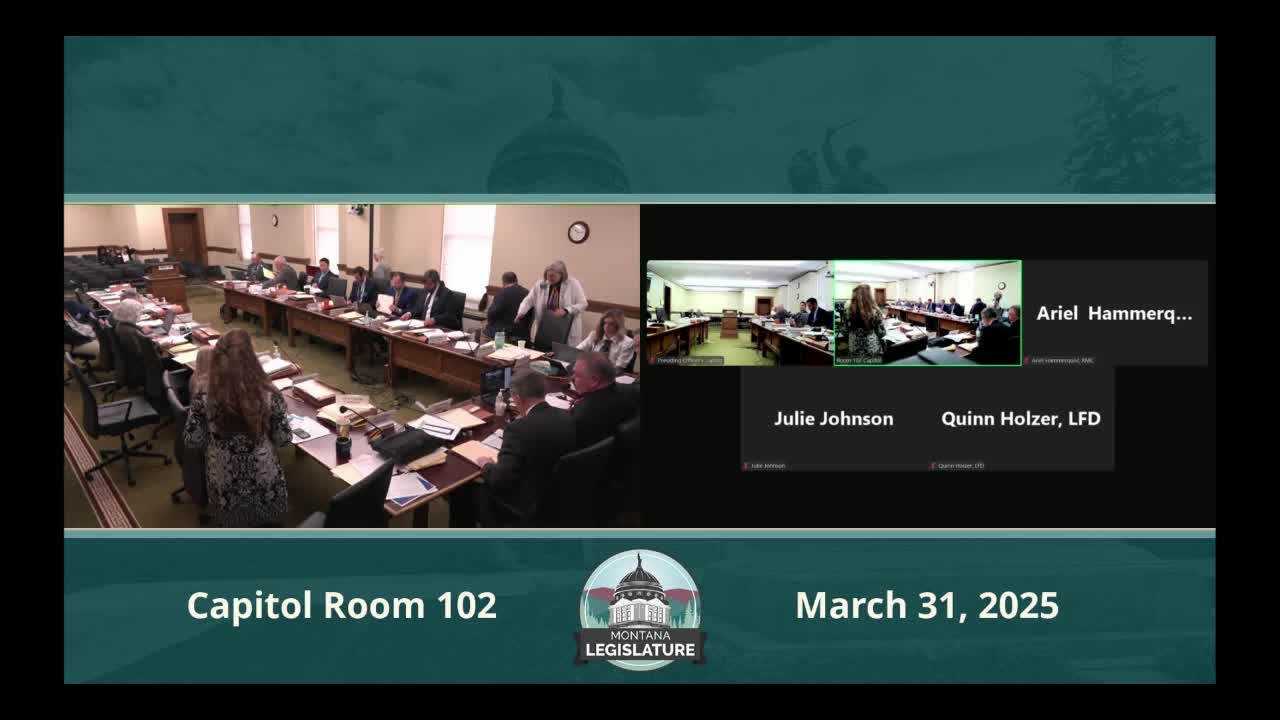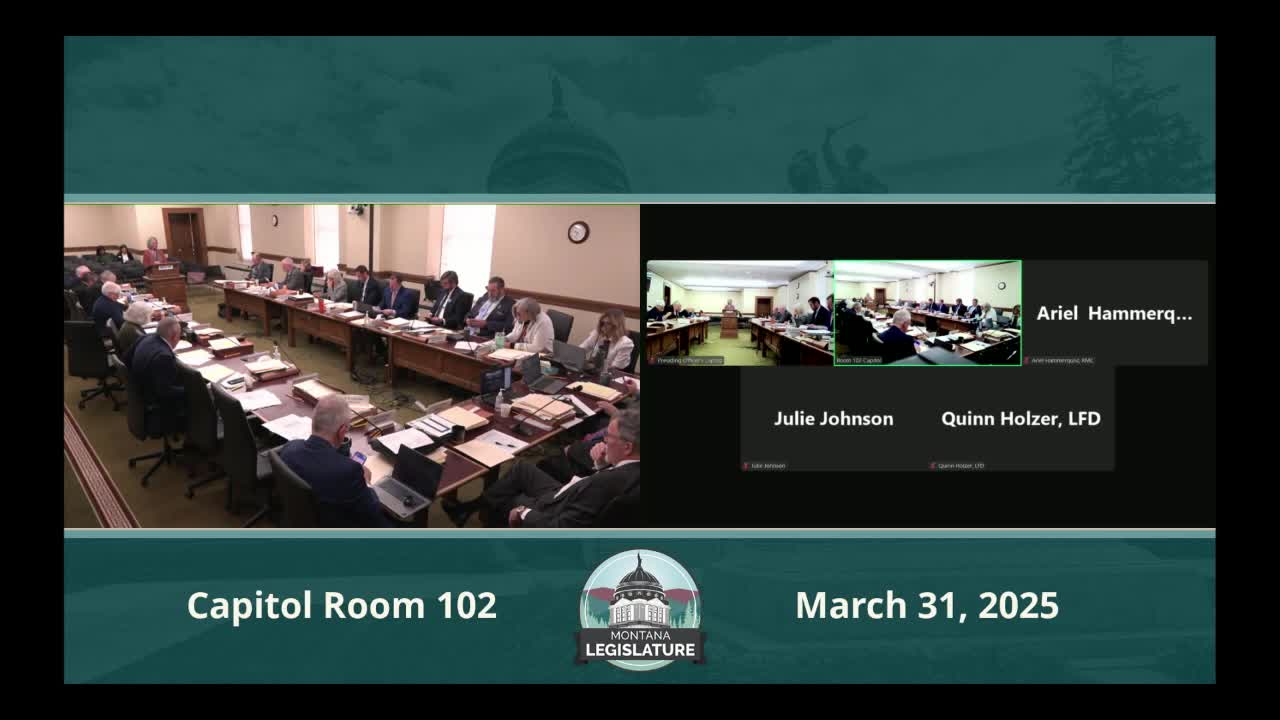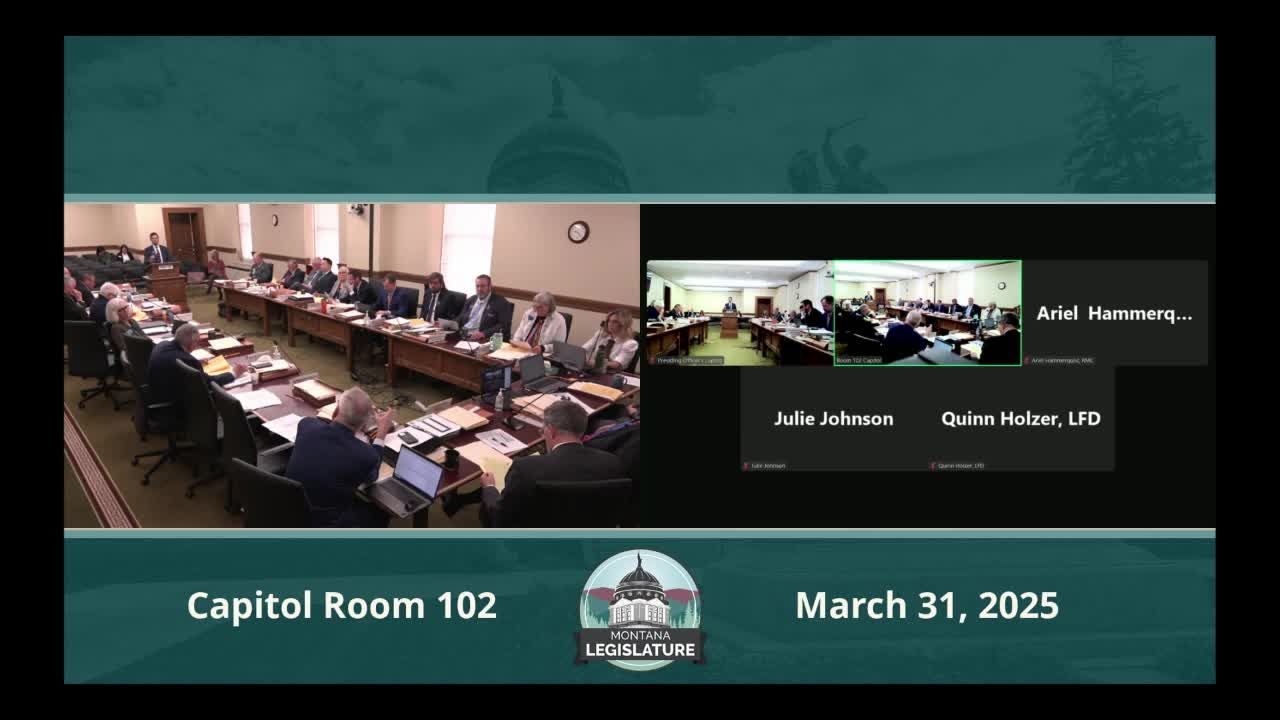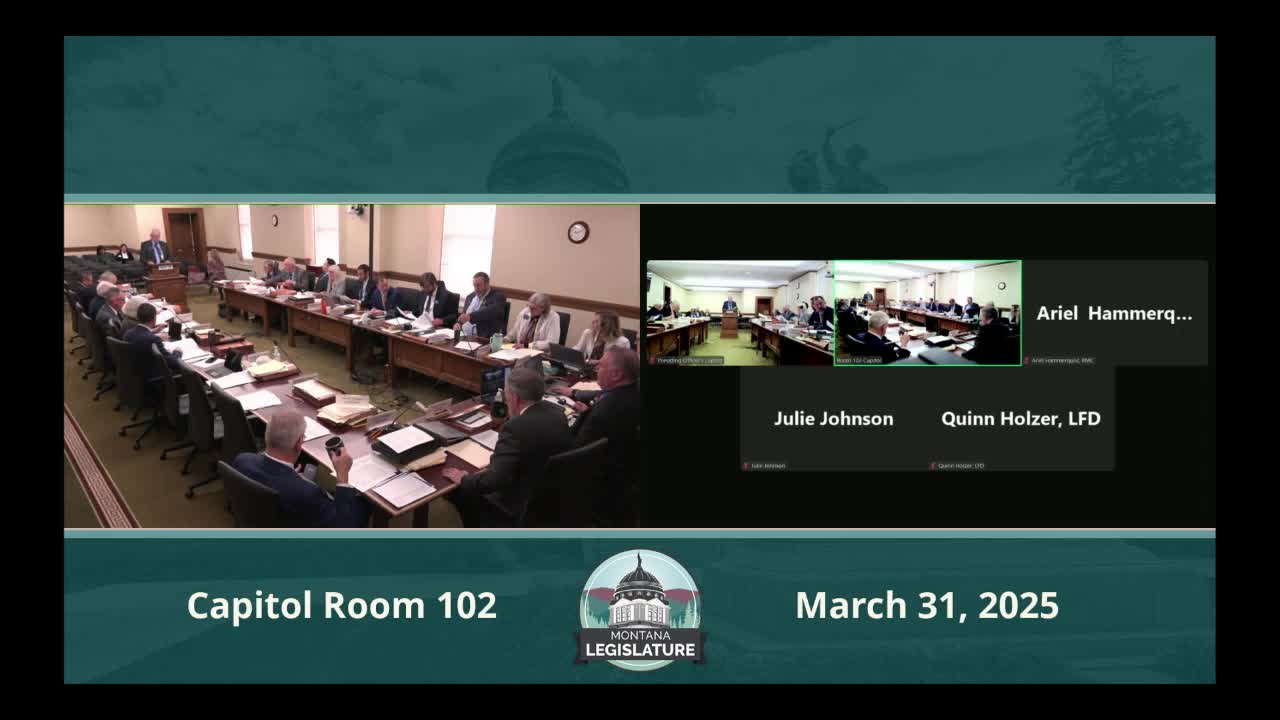Article not found
This article is no longer available. But don't worry—we've gathered other articles that discuss the same topic.

Appropriations committee executive actions: summary of votes and outcomes

Proposal would eliminate reduced-price school meal copay; sponsor asks for $600,000 appropriation

Lawmakers consider Board of Housing loan program to defer property-tax increases for some seniors

